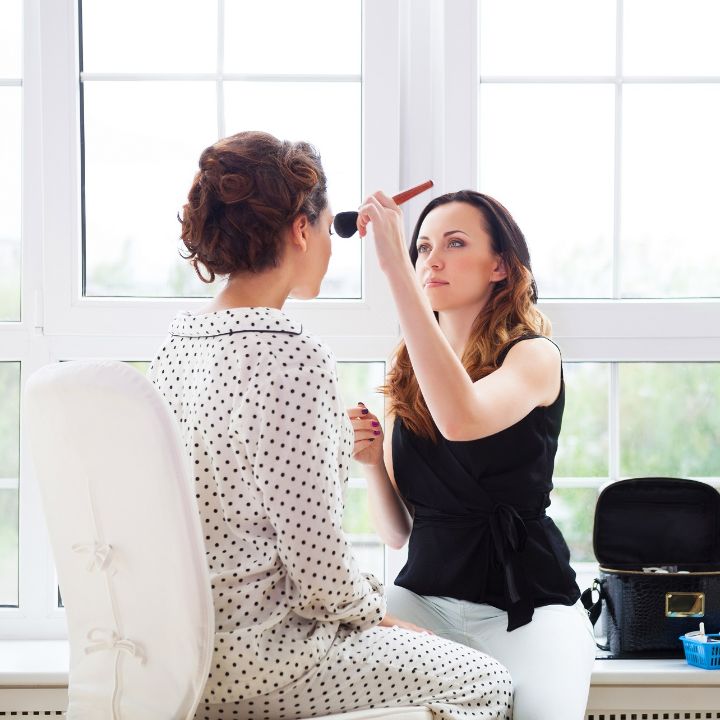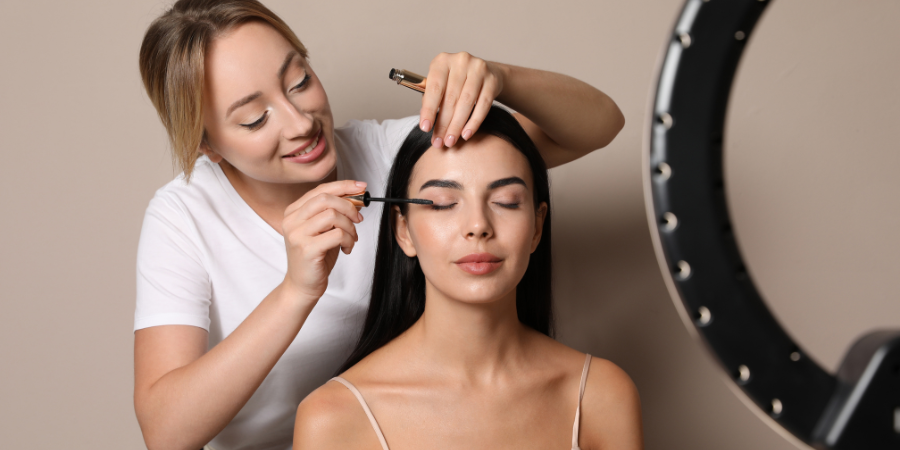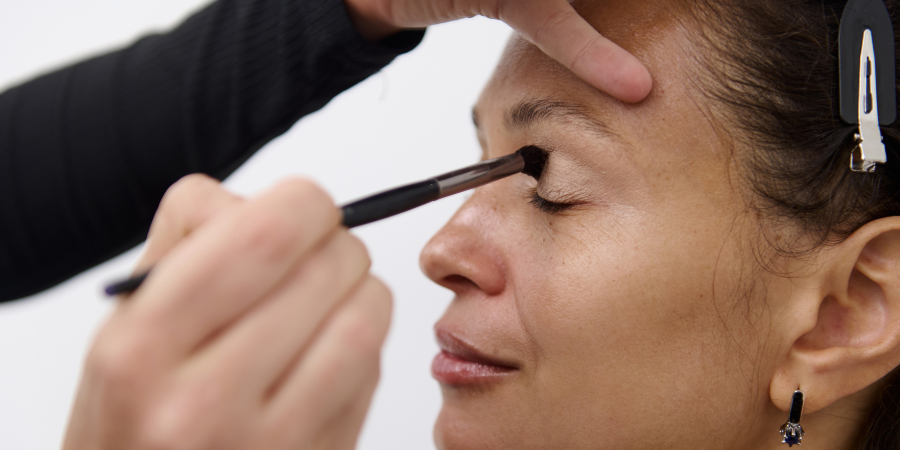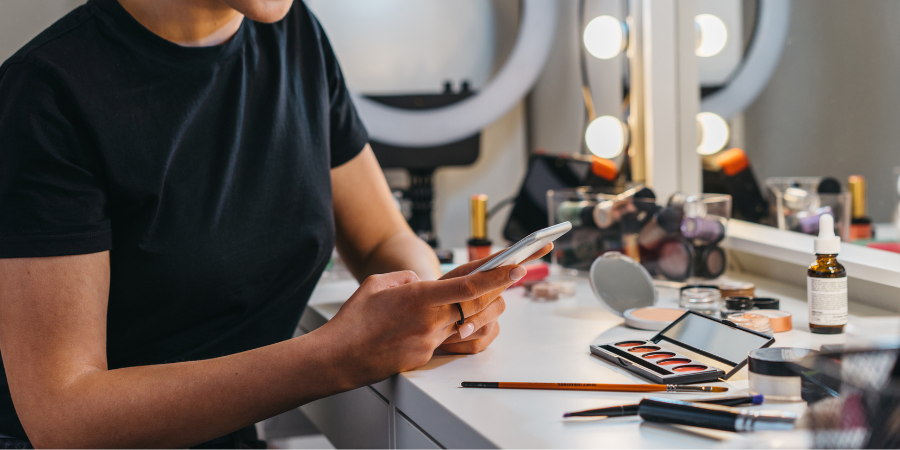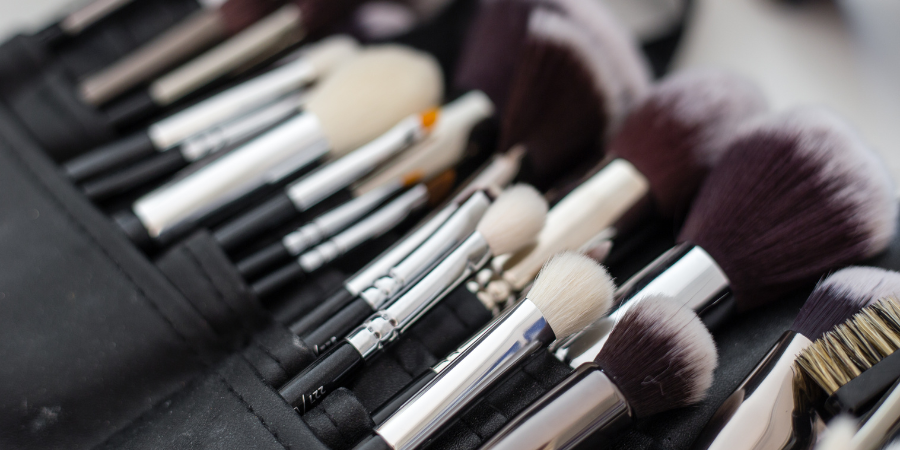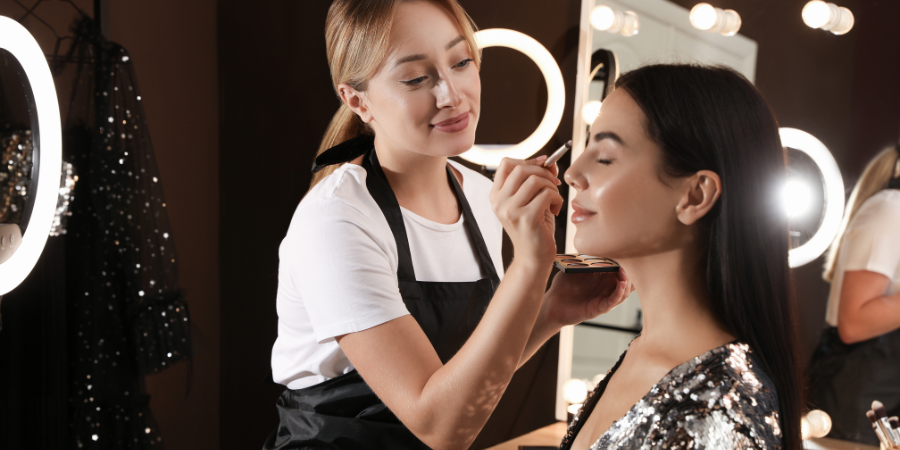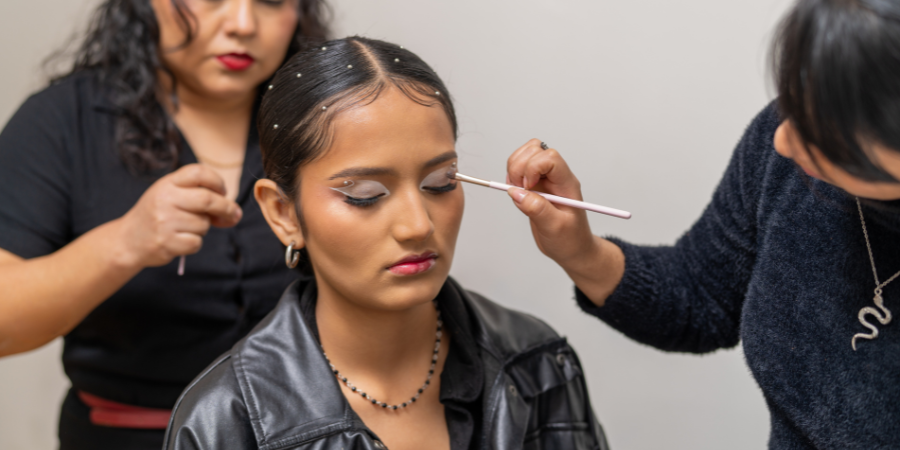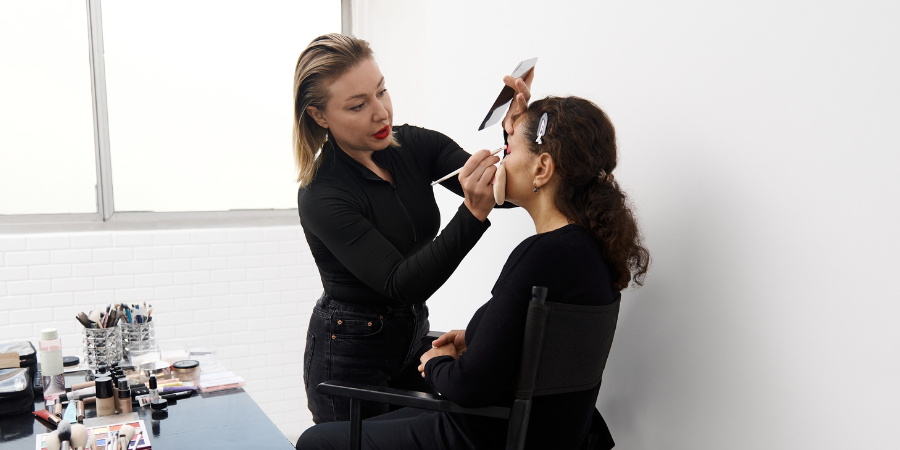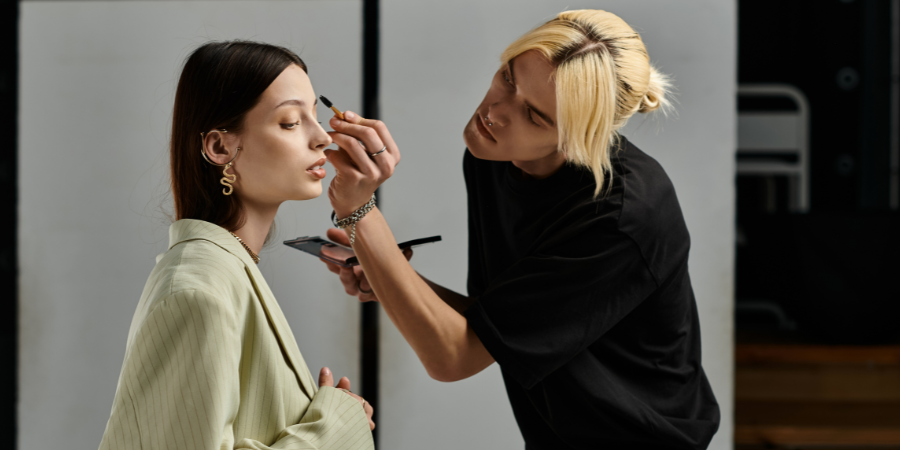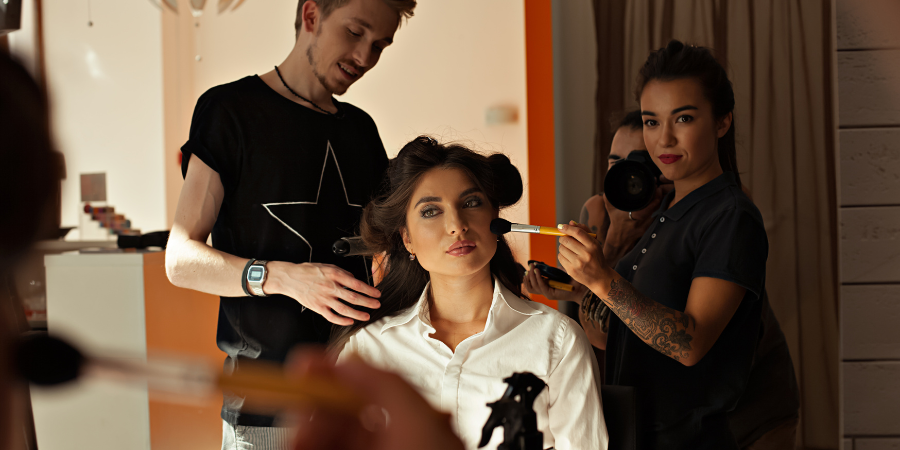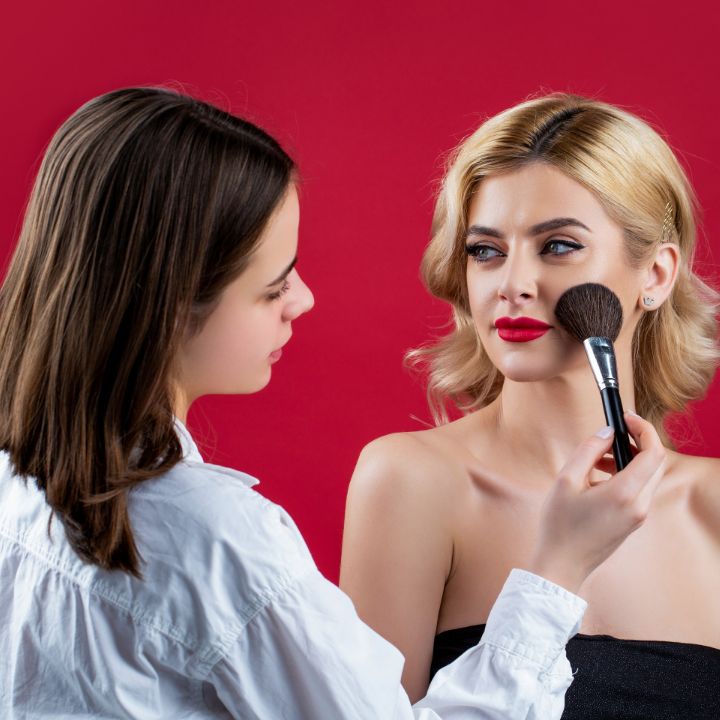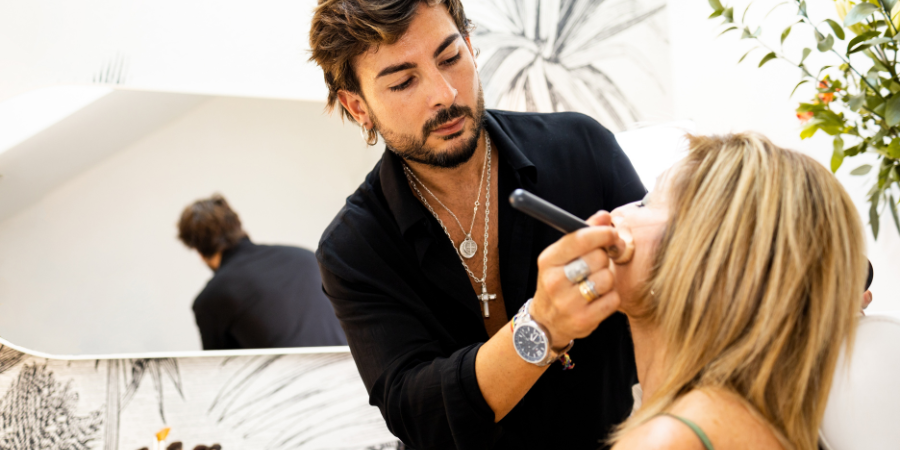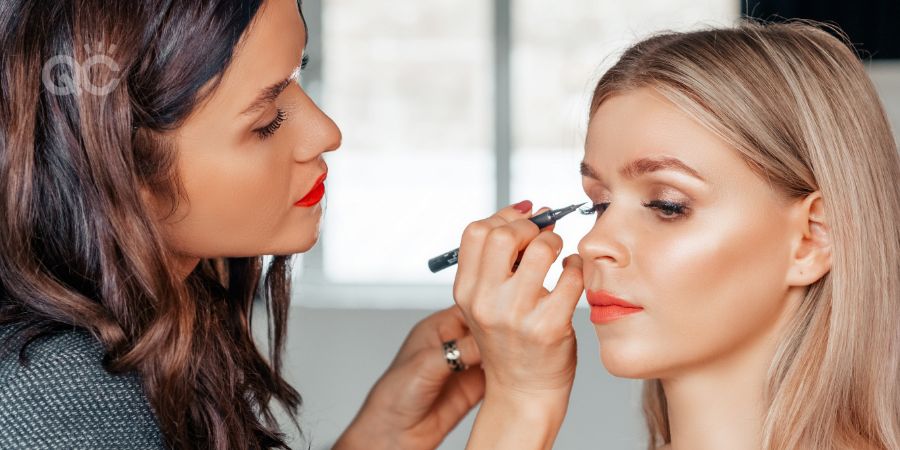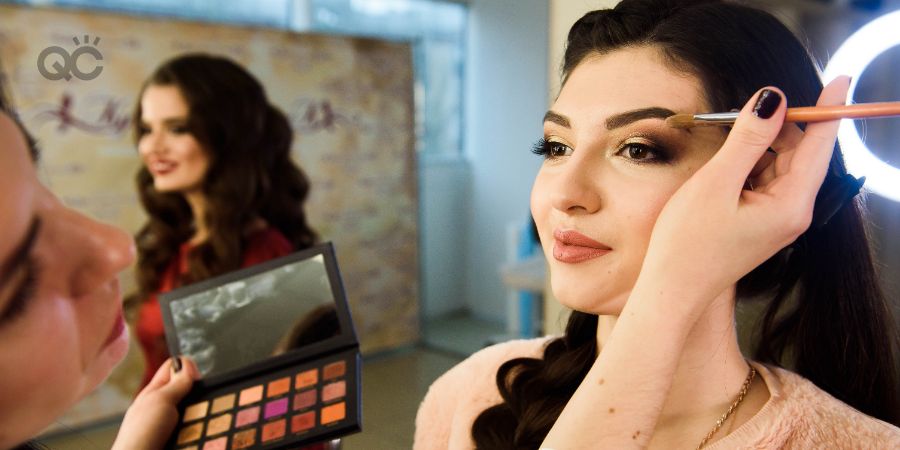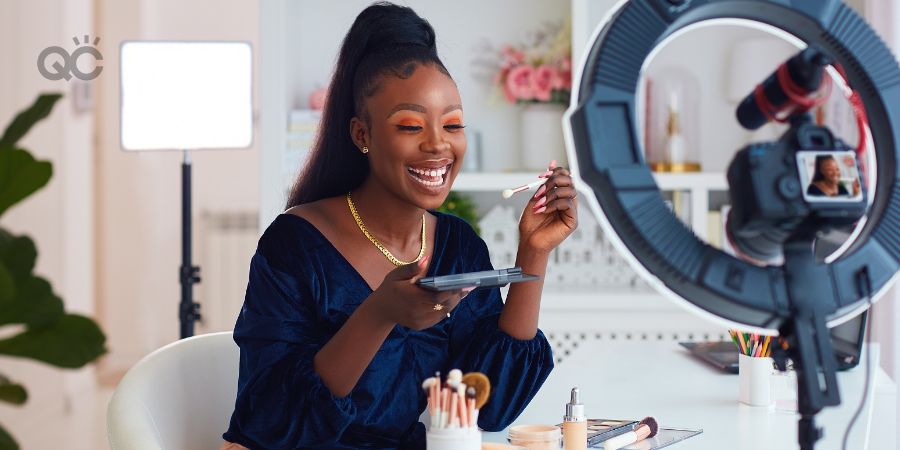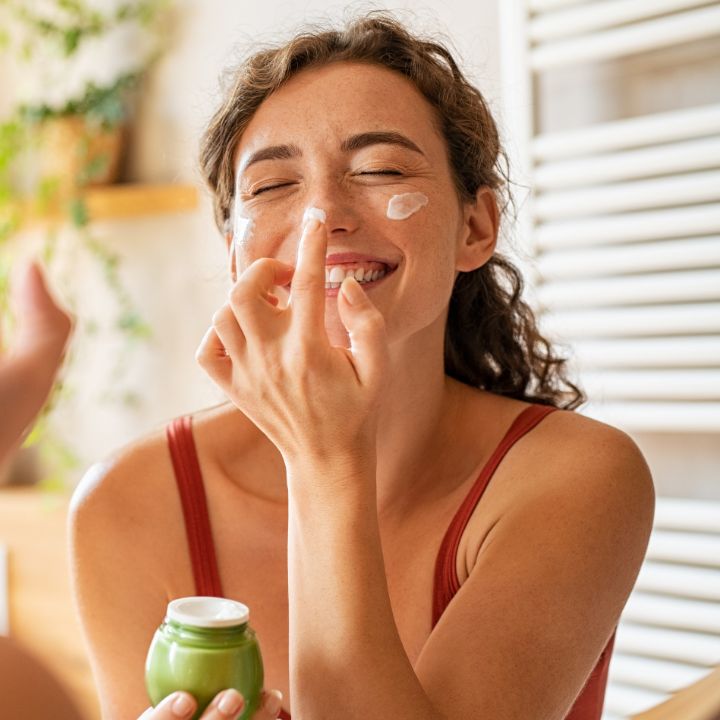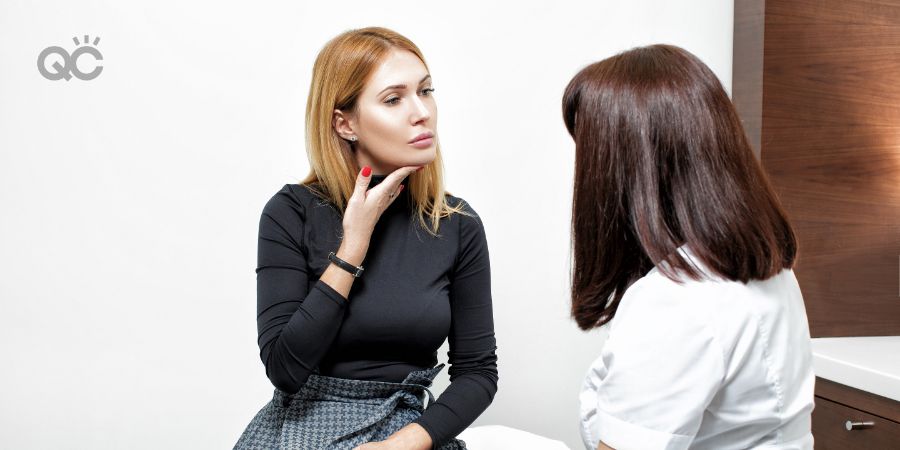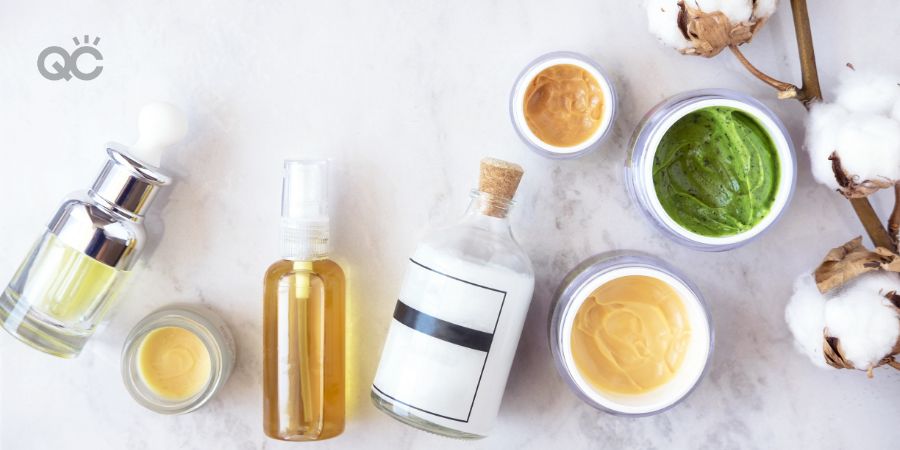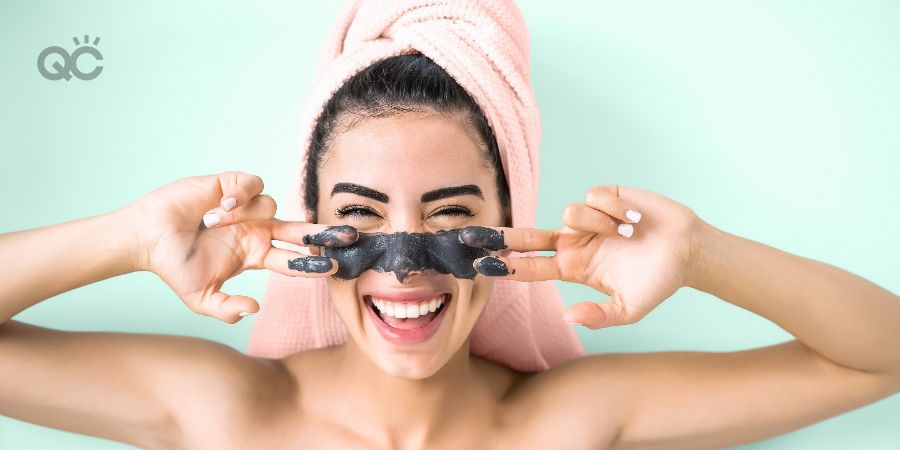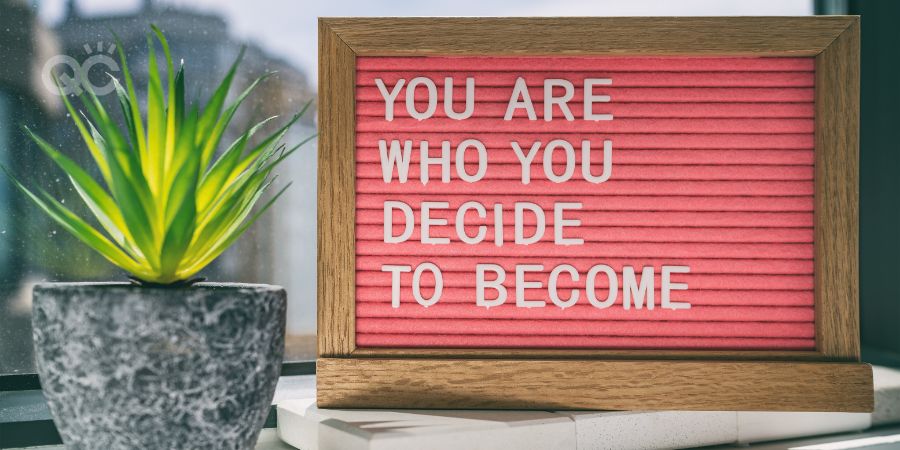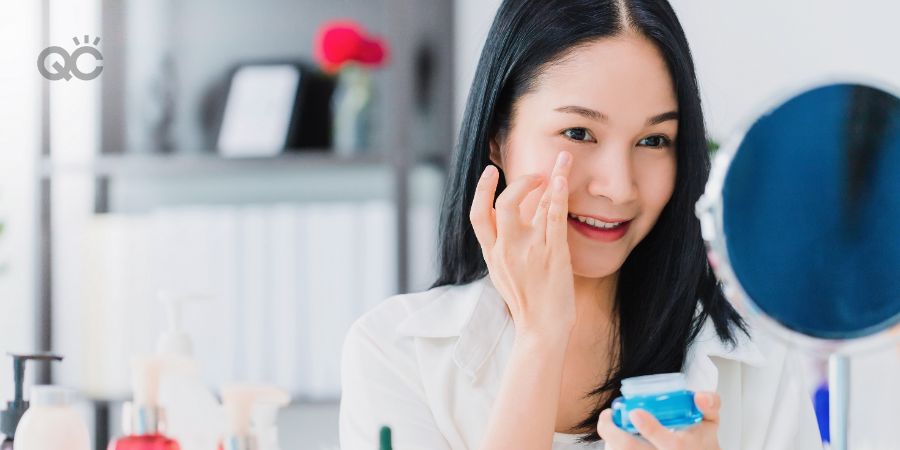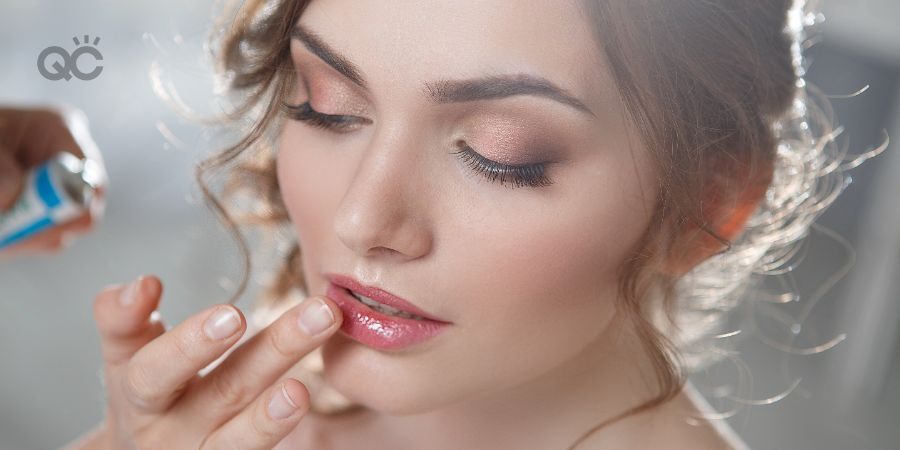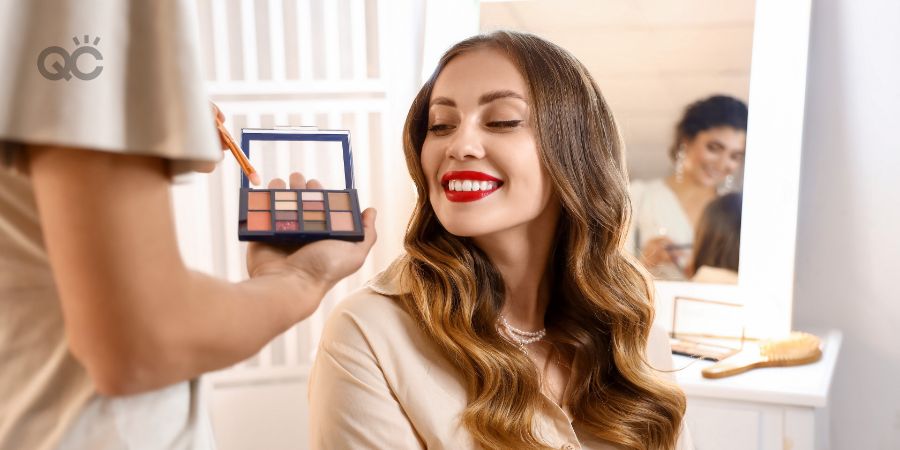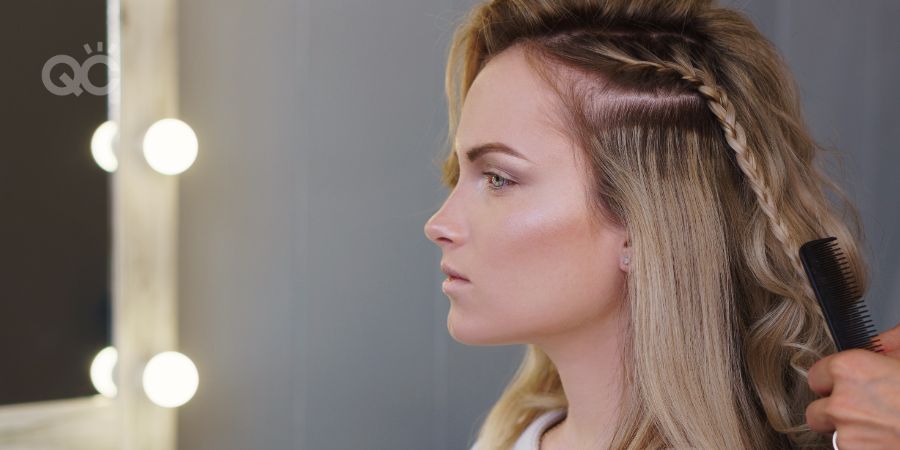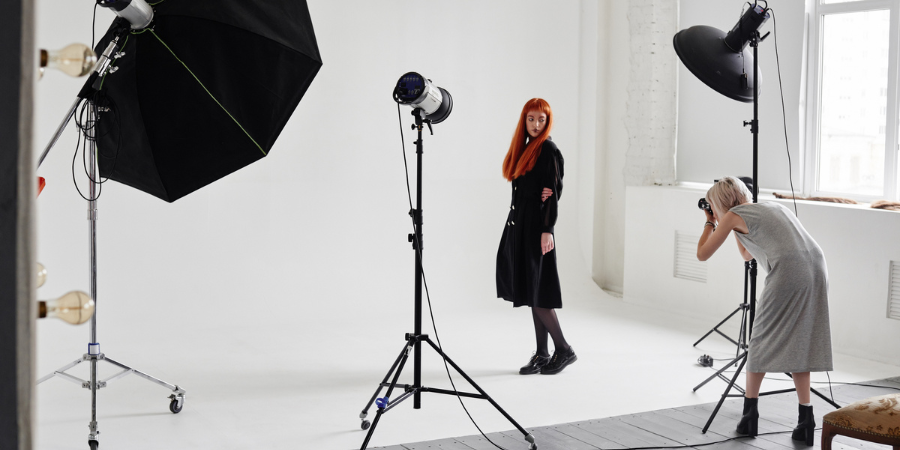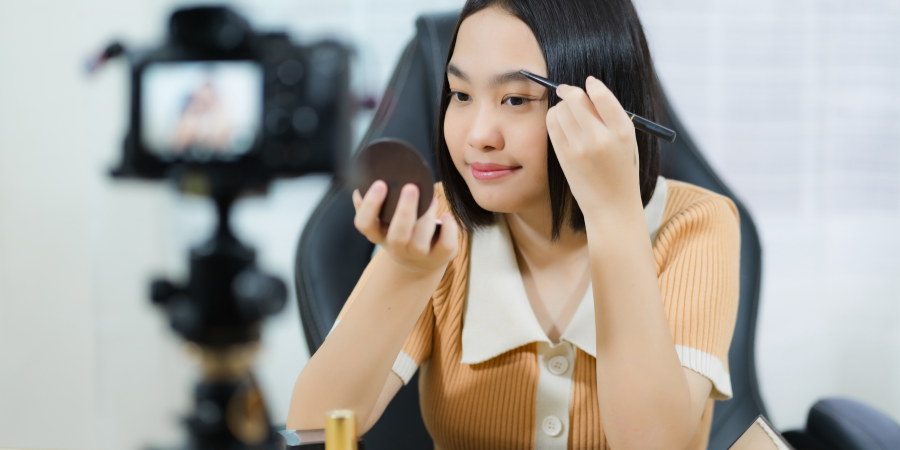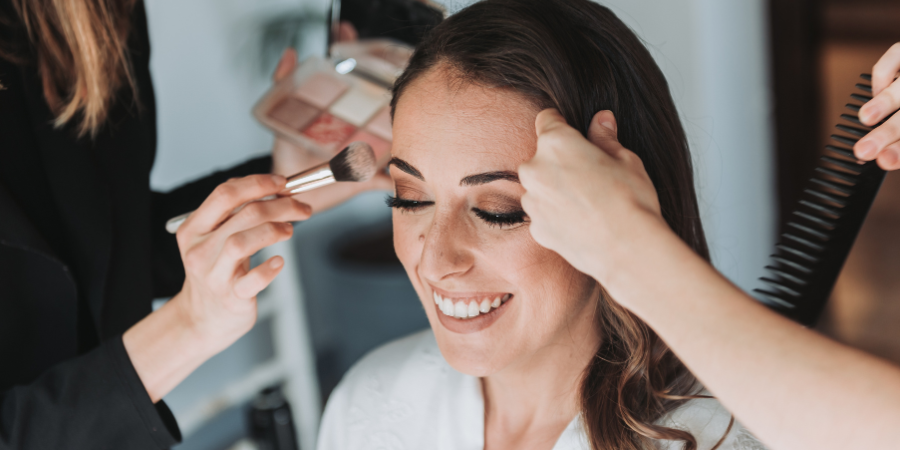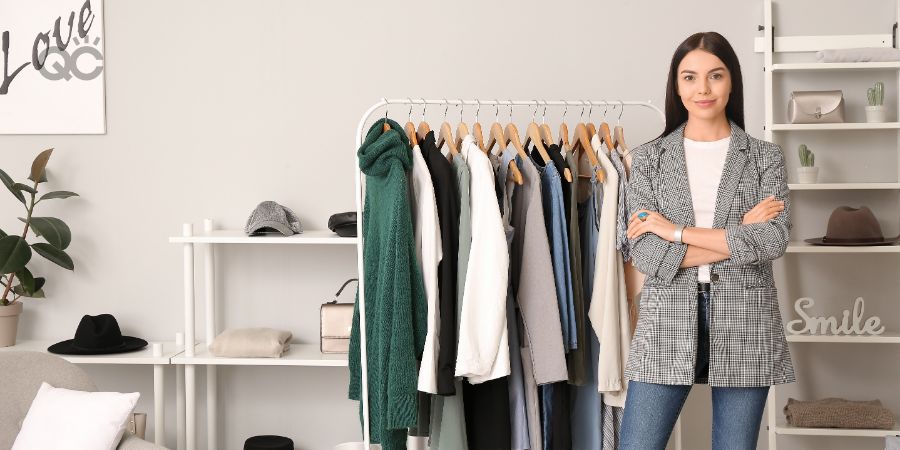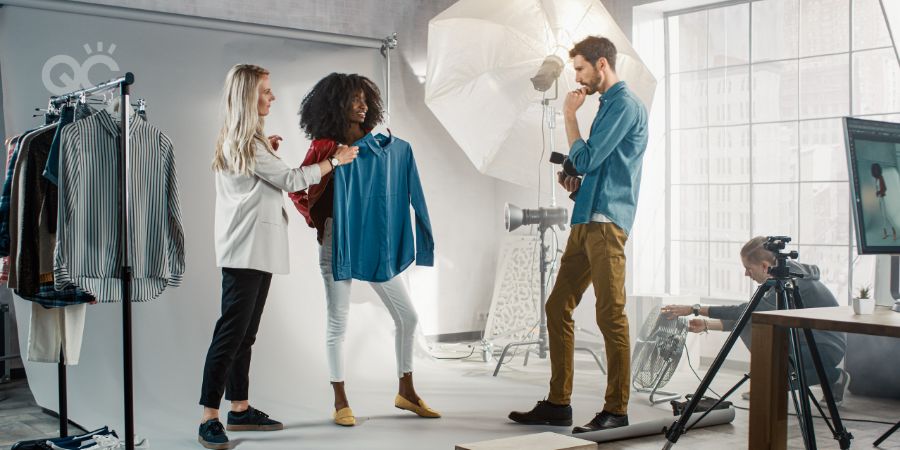
Makeup artists are responsible for making their clients look beautiful, no matter what the occasion. The best makeup artists not only have technical skills – but also a number of other important skills that help them do their job properly. In this article, we’ll discuss the basic skills that every makeup artist should know.
By possessing these specific, key skills, you’ll be able to find true success in the professional beauty industry!
But wait! Before we dive in, have you read our ultimate guide on becoming a makeup artist (even without any prior experience)? No? Then make sure to check it out here!
Is Doing Makeup a Skill?
A lot of people seem to think that applying makeup is a skill that anyone can do. And while it’s true that literally anyone can apply makeup – not everyone can do it well.
Think about it this way… You wouldn’t trust just anyone to give you a haircut, would you? The same logic applies to makeup. Just because someone knows how to put on a little foundation and mascara doesn’t mean they’re qualified to give you a full-blown makeover!
No, in order to be considered a skilled makeup artist, there’s MUCH more than that required… And this is exactly why professional training is critical to long-term success. So, let’s take a look at that, shall we?
What Subjects Do You Need to Be a Makeup Artist?
In order to be a successful makeup artist, you’ll need to have a firm understanding of basic artistry and color theory. We’re talking about concepts like shading, highlight, and contouring – along with an understanding of how light interacts with various colors.
You’ll also want to make sure you have a good grasp on hygiene practices (more on that later) and understand the different skin types people have. Oh, and don’t forget about the actual makeup application techniques themselves! The better you are at applying makeup, the happier your clients will obviously be.
See? There’s a lot more to being an MUA than just “putting on some lipstick”.

Learning Via Social Media Vs. Proper Courses
Social Media
Importantly, the knowledge mentioned above isn’t something you can acquire simply by watching YouTube tutorials, or by following social media gurus. Why is this?
Simply put, most of these MUAs – while great at what they do – only know how to apply makeup to their own face. They can’t actually teach you the foundational knowledge required to know how to apply techniques to other faces. Sure, knowing how to create a stunning look on your own face is useful… But clients will have different bone structures, facial features, skin types, skin tones, etc.
If you can’t actually apply your skill to other people, you won’t be much use to them, will you?
Furthermore, most makeup gurus on social media only know how to create the “social media style“. A lot of the time, this style of makeup doesn’t actually utilize professional, classic techniques. As such, it won’t be overly useful in most areas of the professional beauty industry (such as in bridal makeup, editorial makeup, SFX makeup, etc.).
As a makeup artist, you have to be able to create any and every style of makeup the job is asking for – not simply one style. The only way to know how to create any style is by first understanding the core techniques of makeup artistry… And this is where a legitimate makeup school comes into play.
Professional Makeup Training
So, what’s the best way to learn how to legitimately do makeup to a professional standard? The answer is simple: by enrolling in a professional makeup training program!
In a proper makeup course, you’ll learn from qualified instructors who have years (if not decades) of experience in the industry. They’ll be able to teach you everything from the basics of color theory and artistry… To more advanced techniques like airbrushing, special effects makeup, and even henna tattoos.
What’s more, your practical assignments will also give you plenty of hands-on experience working with real models. This is critical, as it’ll give you the chance to put your newly-learned skills into practice. As a result, you can then grow in confidence as you see just how great you’re at doing makeup!
Not to mention, once you graduate, the right makeup course will arm you with an actual certification and professional designation. These will look amazing on your resume – and be sure to impress potential clients and prospective employers alike!
These are just some of the reasons why professional makeup training is so important, and why social media simply can’t compare. If you’re serious about becoming a skilled MUA, make sure to enroll in a quality course… It’ll be the best decision you ever make!
Did you know that QC Makeup Academy offers self-paced, online certification courses that you can complete in as little as 2-6 months? It’s true! QC has been a pioneer of distance learning since 1984 – and you can learn all about our school on our website!

Do You Need to Be Good at Drawing to Be a Makeup Artist?
No, you don’t need to be good at drawing to be a makeup artist. However, being able to understand and visualize different types of art can help you create better makeup looks.
For example, if you’re doing a period-inspired look, being familiar with classic paintings can give you a great starting point for your design. Similarly, if you’re creating a modern or avant-garde look, knowing about contemporary art styles can help you come up with something truly unique!
Of course, at the end of the day, the best way to improve your skills is simply by practicing as much as possible. The more looks you create, the better you’ll become at understanding what works and what doesn’t.
So even if you don’t consider yourself to be particularly “artistic”, don’t worry – you can still become a great makeup artist. The key is to simply never stop practicing, and to always be open to new ideas!
Makeup 101: Simple Makeup Skills All MUAs Need to Master
By the time any makeup artist is taking on paying clients, there’s a certain level of subject-matter expertise they’re expected to have. Otherwise, the customer likely won’t be getting their money’s worth – and you probably won’t get a very good review.
For instance, here are just 5 basic skills/techniques you’ll need to master BEFORE booking any jobs:
1. Skin Prep
The first step to any good makeup look is proper skin prep. This means cleansing, exfoliating, and moisturizing the skin to create a smooth, hydrated base.
If you don’t prep the skin properly, your foundation will look patchy and your concealer won’t stay put. Furthermore, if you don’t know how to identify your client’s skin type, you won’t know the right skin products to put on their skin – let alone the right makeup products!
In other words: take the time to do this step right, and your whole makeup look will be better for it!
Become an International Skincare Consulting Professional (ISCP) in as little as 2 short months by enrolling in QC Makeup Academy’s Skincare Course today!

2. Hygiene
As a makeup artist, you’ll be working with all sorts of different people. This means it’s important to always practice good hygiene, both for your own sake and for the sake of your clients!
Some key things to remember:
- Always wash your hands before starting any makeup application
- Use clean brushes, sponges, and other tools
- Use disposable applicators whenever possible
- Never share makeup products with anyone
- Disinfect your workstation before and after every application
By taking these simple precautions, you can help prevent the spread of bacteria and illness – and keep yourself (and your clients) healthy and happy!
3. Color Correcting
Color correcting is a technique used to neutralize discoloration on the skin. This can be anything from dark circles to redness, hyperpigmentation, or even bruises!
Makeup artists use color theory to determine which concealer shades will cancel out specific types of discoloration. For example, green concealer is typically used to neutralize redness, while yellow concealer can help cancel out dark under-eye circles.
If you don’t know how to color correct, your concealer will just end up looking muddy and won’t do a very good job of hiding imperfections. As a result, your client’s skin will look uneven and their makeup will appear cakey and heavy.
To avoid this, make sure you know the basics of color correcting before taking on any clients!
Not sure where to start? Watch this informative color correcting webinar by celebrity MUA and QC Makeup Academy executive instructor, Nathan Johnson!
4. Color Matching
Once you’ve prepped and corrected your client’s skin, it’s time to start matching them to the right foundation shade!
This might seem like a no-brainer, but you’d be surprised how many makeup artists get this step wrong. The wrong foundation shade can completely throw off the rest of your client’s makeup – and make them look either washed out or overly made-up.
To avoid this, it’s important to take the time to identify your client’s skin tone and then find their perfect foundation match. If you don’t have a product that already matches their skin tone, don’t worry! Your training will equip you to mix and match your foundations in order to create the color they need!

5. Eyebrows
Eyebrows are arguably the most important feature on the face. As a makeup artist, it’s your job to make sure they look their best!
(And we’re not talking about the boxy, unnatural brows we’re all so used to seeing on social media… No, in the world of professional makeup, eyebrows still need to look natural!)
This means knowing how to shape your client’s brows, fill them in, and highlight them properly. It also means being able to identify the different eyebrow shapes and determine which one will suit your client’s face the best. If you don’t know how to do all of this, your client’s eyebrows will end up looking uneven, sparse, and just plain bad.
And let’s be honest – no one wants that!
So, if you’re serious about becoming a makeup artist, make sure you put in the time to master the art of eyebrow shaping. Once you’ve got that down, the rest will be a breeze!
Check out this incredible step-by-step tutorial by QC Makeup Academy Student Ambassador, Amanda Ramey, on how to achieve natural, realistic brows… Even if your client has no eyebrows at all!
The Basic Skills Every Makeup Artist Should Know: Soft Skills
Now that we’ve gone over some of the basic technical skills every makeup artist should know, let’s talk about the soft skills you’ll need to be successful in this industry.
While hard skills are important, they’re not the only thing that will make you a great makeup artist. In order to really excel in this field, you’ll need to possess certain soft skills as well.
Some of the most important soft skills for MUAs include the ability to:
- Listen to and understand your client’s needs
- Communicate effectively with your client
- Build a respectful, positive rapport with your clients
- Stay calm under pressure
- Embrace and learn from constructive criticism
These are just a few of the essential soft skills you’ll need to master if you want to be a successful makeup artist. So, if you’re not already proficient in these areas, now is the time to start working on them!

What Hard Skills Does a Makeup Artist Require to Run Their Own Business?
In addition to the basic technical skills and soft skills we’ve discussed, there are also certain hard business skills every makeup artist should have if they want to be successful long-term.
Some of the most important business skills for MUAs include the ability to:
- Market and promote your business
- Manage your finances
- Network and build relationships with other industry professionals
- Set goals and create a business plan
If you don’t already have these hard business skills, it’s okay! There are plenty of resources out there that can help you develop them. And, of course, your training at QC Makeup Academy will also provide you with some essential business education.
After all, EVERY one of our online certification courses comes with a full unit devoted entirely to business training!
Here’s our full list of online makeup and beauty courses, in case you’re interested in checking them out!
To Wrap Things Up…
There you have it! These are just a few of the basic skills every makeup artist should know. So, if you’re thinking about becoming a makeup artist, make sure you brush up on these essential skills before taking the plunge!
And, of course, don’t forget to enroll in a reputable makeup artistry course so you can receive proper training from experienced industry professionals.
At QC Makeup Academy, our online courses are designed to provide you with all the education and resources you need to launch a successful career in the beauty industry – no matter where in the world you happen to be!
So, what are you waiting for? The time to start your dream career is NOW!
